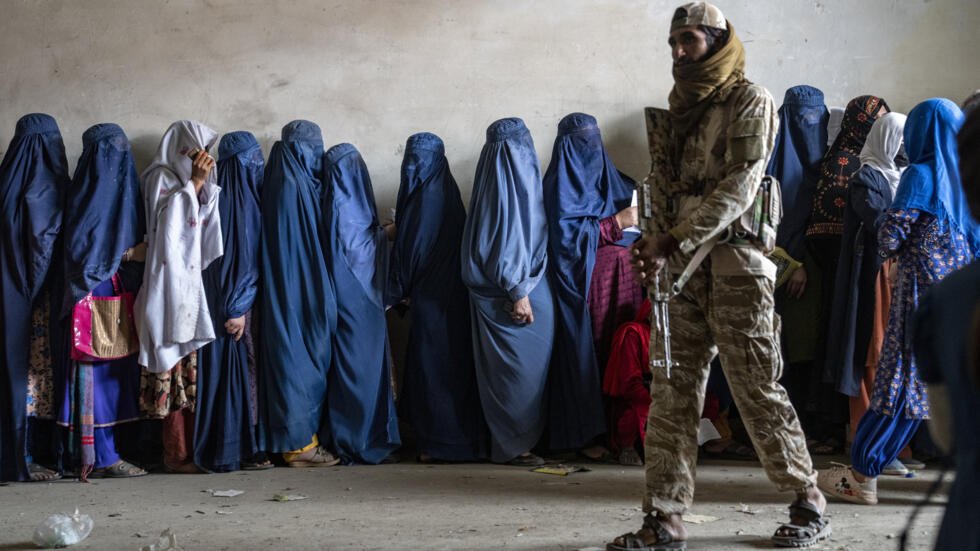The Taliban says that “talking things over” is the only way forward after their new “morality law” has been criticized.

Last month, the Taliban in Afghanistan introduced a new law called the “Propagation of Virtue and the Prevention of Vice.” This law was announced on August 21 by Afghanistan’s Ministry for Promoting Virtue and Preventing Vice, a department the Taliban reinstated when they regained control.
Issued on August 21 by Afghanistan’s Ministry for Promoting Virtue and Preventing Vice, a department reinstated by the Taliban when they took power in August 2021, the new law requires women to cover their bodies and faces completely and prohibits them from speaking or singing loudly enough for non-family members to hear.
In response to severe criticism from the United Nations, the Taliban’s Ministry of Vice and Virtue has urged the UN Assistance Mission in Afghanistan (UNAMA) not to “compare Afghanistan with Western theories and non-Islamic societies,” according to TOLO News. The ministry also announced it would no longer cooperate with UNAMA due to what it calls “misleading propaganda” from the organization.
Stephane Dujarric, spokesperson for the UN Secretary-General, responded by stating that the UN will continue to engage with all relevant parties in Afghanistan, including the interim government. “We will continue to engage with all stakeholders in Afghanistan, including the Taliban,” Dujarric said at a press conference on Saturday.
Hamidullah Fetrat, Deputy Spokesperson for the Islamic Emirate, emphasized that “engagement” is key to resolving challenges and that countries and organizations should interact positively with the Islamic Emirate.
The new law, as published in the official gazette, interprets Islamic Sharia law to mandate that women cover their entire bodies and faces, considering their voices as ‘awrah’ (intimate parts) that should only be heard in necessary situations. It also prohibits drivers from playing music or transporting women without hijabs and restricts interactions between men and women who are not related.
According to the law, it is forbidden for unrelated men to look at women’s bodies or faces, and vice versa. Violations will be punished by the Taliban’s Muhtaseebs, or morality police, who can detain individuals for up to three days.
Ravina Shamdasani, spokesperson for the UN Office of the High Commissioner for Human Rights, criticized the law for further silencing women and depriving them of their rights, describing it as an attempt to make women “faceless, voiceless shadows.” The UN High Commissioner for Human Rights, Volker Turk, has called for the immediate repeal of the law.
The law, which mandates full-body covering, bans the transportation of women unless accompanied by a male relative, and prohibits women’s voices from being heard in public, adds further restrictions to women’s rights, according to Shamdasani. She warned that these measures will worsen the human rights and humanitarian crisis in Afghanistan.
Rosemary di Carlo, Under-Secretary-General for Political and Peacebuilding Affairs at the UN, condemned the new law as an unacceptable infringement on human rights and freedoms, especially for women, and warned it could hinder Afghanistan’s re-engagement with the international community.
UNAMA has expressed concern over the law, is reviewing its implications, and is seeking clarification from the Taliban on its enforcement and impact. UNAMA continues to monitor and report on human rights issues and maintain discussions with the de facto authorities.
Special Representative of the UN Secretary-General, Rosa Otunbayeva, criticized the law for extending existing restrictions on Afghan women and girls, and plans to brief the Security Council on the situation in Afghanistan on September 18.





